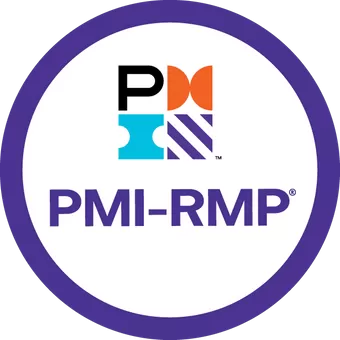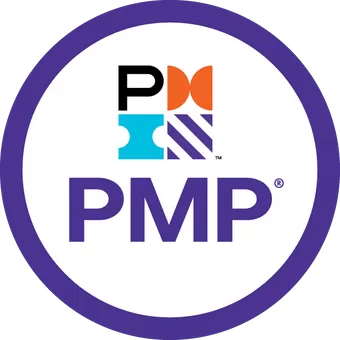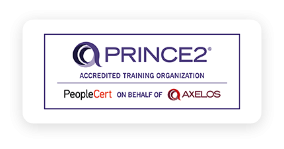
Marketing Management Tips, Strategies, And Activities
Written By : Bakkah
15 Jan 2024
Organizations with a bigger budget may implement a variety of marketing strategies and Marketing Management simultaneously. The advantage of having this, of course, is the immediate exposure of its products and services to millions of potential customers. Smaller businesses, on the other hand, need not despair. Equally practical and low-cost marketing strategies are available. The key here is to create a marketing strategy plan that reflects the needs of the business and works within its budget.
What is Marketing Management?
Marketing Management is the operational, execution, and tracking process for better a marketing strategy for companies. Marketing Management includes outlining the company's plan for marketing and following up with the organic and paid campaigns and ensuring that they are on the right track and return the profit expected by the company's stakeholders.
Marketing Management also has to do with managing the marketing team that orchestrates all marketing activities. A marketing manager is involved in the planning and implementation of programs that include branding, product development, promotion, and customer relationship that are geared toward achieving the organization’s objectives. The success of any business often depends on its marketing strategies.
Why is Marketing Management Important?
Marketing management is important for businesses planning to compete or keep their advantage over competitors. This can be used to increase awareness of existing products and services or promote new ones. A well-planned marketing strategy can help increase brand awareness bringing in new customers to the business.
Marketing management gives you an insight into what the market needs. By understanding this, you can improve your products and services. Advertising and promotional activities help you reach out to new customers and expand your market base. It can also save your business from unnecessary expenditures and lets you focus your resources on activities that increase conversion.
Marketing Management Tips To have:
Marketing Managers enjoy some of the highest salaries in the mid-management levels. After all, they are responsible for one of the most critical processes in the business- selling its products and services. However, the position is certainly not for everyone. It takes a specific individual with the right aptitude and market-savvy skills to perform optimally as a marketing manager. If you’re planning to start a career in marketing management, here are the must-have skills:
Tip 1: Sales Skills
It's all about selling, whether selling ideas, products, or services. A marketing manager must have basic sales skills to understand what it takes to get the customer to buy a product. This is undoubtedly essential, but a marketing manager must be able to look at the bigger picture. They must be able to create a sales strategy that can be implemented throughout the business.
The ability to collaborate and provide direction to their sales team is crucial. To be successful, a marketing manager must be able to work closely with the team. Make it a point to polish your sales skills regularly. By continually interacting with your team and customers, you can exchange ideas and gain valuable insights. It is also the right way of forging better personal and professional relationships with your sales team.
Tip 2: Customer First Mentality
The goal of any marketing strategy is to improve sales numbers, and this can only be achieved by understanding your customers. A customer-first mentality can be achieved by placing yourself in your customer's shoes. Asking yourself important questions such as what you expect in a product and what makes it better compared to other products in the market. The subject of "price" should only be considered after considering how your customer values your product. Customers are willing to pay higher for products they perceive as quality or value.
Tip 3: Can-do Attitude
"Can't" or 'impossible" is the last word that a marketing manager must say. To be the best, you must have that can-do attitude. Marketing managers must be able to create solutions or at the least, make a compromise. They must be able to provide solutions by recruiting if necessary and escalate their concerns to management. Marketing managers must be able to go to the "ground" and make actual sales to meet sales targets. They must be able to perform and ensure that the job gets done – no excuses.
Tip 4: Team Player
Being a manager does not put you beyond the reach of anyone below you - the opposite is true. To be successful at the top, you must be able to work as part of a team and be continuously engaged with what they do. A marketing manager works with customers, management, sales representatives, and even product developers. They must be involved with everything in the business. Marketing managers must be able to explain to the product development team what a customer wants and work with management to understand their goals and objectives. The marketing manager must know that successful results are not a cause for personal gratification but a feeling of accomplishment for the team and business.
Tip 5: Business Analytics
Never underestimate the importance of business analytics. Today's marketing strategies are primarily dependent on data and analytics. Business analytics provides accurate insight into how customers think and where the market is generally heading. Learning to analyze data helps you create better marketing strategies that are based on current market data.
Tip 6: Dedicated and Passionate
People who are passionate about their work can infect others with their dedication. To be able to work as a marketing manager, you must be able to inspire your team to perform their best. A marketing manager is ultimately responsible for the success or failure of the team. Sharing your energy with the team and inspiring them to achieve their best is the best way to guarantee success.
Tip 7: Facilitator
Marketing managers work with a team, and they must possess exceptional management skills to ensure efficiency and productivity. They must be able to identify individual strengths and assign tasks accordingly. The key to making each task for every member easier is to give them jobs that they do best. The best marketing strategies are those that are simple, targeted, and precise.
Each member of the marketing team must have a clear understanding of their role and what is expected of them. You must be able to facilitate or orchestrate each task, ensuring that every step in the marketing strategy is implemented. This is to ensure that you make it easier for everyone and that all marketing goals are met.
Tip 8: Work with Management
A marketing manager is a senior position, and you must harmonize your goals and objectives with those of management. You must be able to work both sides of the coin. Balancing the interest of management and meeting the expectations of customers. Management will always be concerned with meeting sales targets and profit. Customers, on the other hand, are concerned with prices and quality. Things that are frequently opposite each other. The key to becoming a successful marketing manager is finding a balance between management and customer expectations.
How to Manage Marketing Activities? - How To Improve Marketing Strategies?
As a business, there is a clear understanding of the importance of an effective marketing strategy. However, implementing a marketing strategy takes time and financial resources. There are no definite answers on when or how much a business should invest in a marketing strategy. The cost of a marketing strategy depends on the type of strategy being employed and the needs of the business.
Strategy 1: Leverage Social Media
Social media was originally created as a medium for connecting people and building personal relationships. However, social media has quickly surpassed its original purpose and has become one of the most powerful marketing tools today. Some of today's most successful businesses were built on the backs of social media. Starting as an online store on Facebook, these have quickly become some of the most successful online retailers catering to millions of followers across the globe.
Enlisting the services of a social media manager can help your business take advantage of this marketing strategy. You could quickly catapult your business into the limelight by establishing a presence across different social media platforms. A social media manager could help you build your connections, helping you expose your business to a broader market. Promoting a new product or service is as easy as creating a post on Facebook or uploading an image on Instagram.
Strategy 2: Build a Strong Online Presence
Mention any of the most successful or significant companies, and you will surely find them online. "In 2021, over 2.14 billion people worldwide are expected to buy goods and services online, up from 1.66 billion global digital buyers in 2016," according to a study made by Statista. Changing customer attitudes and the convenience of buying goods and services at the comfort of your homes is something that is hard to compete with.
Creating a website for your business is only half of the solution. Having your webpage visible on customer searches should be your priority. This makes your website more visible to customers, especially to new customers. However, this is easier said than done. With thousands of businesses competing for the top spot, a company must be able to employ an effective Search Engine Optimization (SEO) strategy.
A professionally done website speaks volumes for your business. It exudes professionalism and builds trust among your clients. It can give potential customers and clients an insight into your organization. Compared to brick-and-mortar shops, an online store can be open 24/7. It is also relatively cheaper and doesn’t require extensive financial resources to maintain.
Strategy 3: Advertising on Traditional Media
Compared to the two first marketing strategies, advertising on traditional media can be more expensive. However, even in this digital world, the importance of traditional media (radio, TV, printed media) should not be underestimated. However, this marketing strategy may be best left for big businesses and organizations with financial resources to spare.
Traditional media, like national television, can have a positive effect on your marketing efforts. A well-placed television advertisement during prime time, for example, can instantly introduce your business to millions of people. However, this certainly doesn't come cheap. Advertising costs can run into thousands or even millions of dollars. Radios, on the other hand, can also give you the same benefits at a lower cost.
Strategy 4: Networking and Events
Networking involves the exchange of ideas or information among people with similar interests. This is usually done during an event or an informal social setting. As a marketing strategy, networking is used by people to expand their professional relationships in order to increase awareness of their products and services.
Networking can be initiated by people who have a common background. People in the same industry or professional affiliation can start their networking efforts by attending events or trade-shows. Networking keeps marketers updated with the latest news in the industry and helps them develop meaningful relationships that can boost future business relationships.
Strategy 5: Work with Influencers
Influencers are respected experts in their industry. By enlisting the services of an influencer, you can quickly boost your visibility. The key is to find the right influencer that best represents your product or service. Popularity is not the only measure of an influencer. Find the right candidate that can reach your target market. The strategy is to send the message to the right consumer base.
Strategy 6: Referrals
Referrals is a marketing strategy that promotes services and products to new customers, usually via word of mouth. This might be something that is beyond the control of a marketing manager, but through planning, increasing referrals can be achieved through careful planning. The most effective way is to improve customer service or products. You can then use positive feedback as a way of strengthening the value of your products. Marketing managers can also incentives to people who successfully refer a new client. Referrals can be the most powerful marketing tool.
Strategy 7: Email Marketing
To be a successful email marketing campaign, you must first build your subscriber list. This is easier said than done and can take considerable time and effort to build. But don’t just go about collecting email information. These should come from your target market. Building your email contacts can be achieved by providing a signup feature on your website where new visitors can create an account using their email information.
After creating your subscriber’s list, the next step is to crafting emails and scheduling when these emails are sent. You could also leverage email marketing software to make your email marketing simple and more effective. Examples of popular email marketing software include Constant Contact, AWeber, Mailchimp, and Sendinblue.







